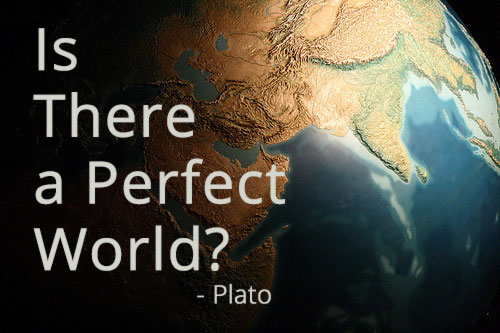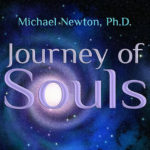
When people ask, “What is your political philosophy?” I think they are really asking about your beliefs. Do you believe in big or small government? Do you believe in gun control? Are you pro-life or pro-choice?
People have lots of different beliefs. Whose beliefs are to become policy? What about people who don’t share those beliefs? What justifies any particular law or policy? These are the kinds of questions that led me to philosophy.
Enter Philosophy
Philosophical thought goes back thousands of years and has dozens of sub-disciplines. Philosophers also have a reputation for getting carried away in their thinking. But as I’ve grappled with political questions, especially with solutions, I’ve found the writing of philosophers quite helpful.
Should a political system “work” for everyone? Say we do. What does “work” mean? How would you define a successful political system? What would be its characteristics? Plato wrote about that back in 380 BC in his dialogue, The Republic. Filled with requirements of censorship, strict class divisions, and elite rulers, I doubt many would find his solution appealing. But at least he was very specific about describing his ideal state. And it is that kind of thought process that makes philosophy so instructive.
Since Plato, generations of philosophers have considered the optimal organization of human societies. Thomas Hobbes (1588 –1679, Leviathan), Jean-Jacques Rousseau (1712-1778, The Social Contract) and John Locke (1632 – 1704, The Two Treatises of Government) all had great influence on shaping the political thought of Western democracies, including the United States of America.
Philosophy Helps Us Get to the Hard Questions
- What does it mean to be human? Is there such a thing as “human nature”?
- Does every human have the right to exist? Under what conditions?
- How should human societies be structured? Is there an ideal?
- What is moral and just? How do we decide?
Rarely do we discuss these fundamental questions during political debates. But they are crucial. It is one thing to be against a particular policy or law. It is another to be able to articulate why you feel that way. And it is even more challenging to clearly define what kind of world you actually want.
Fortunately, we don’t have to start from scratch. Philosophers have been pondering and writing about human nature, morality, ethics and society for hundreds and hundred of years. We would be wise to take advantage of their efforts, even if we don’t agree with their conclusions.
Add History and Science
While philosophy helps us clarify core questions, it is also important to explore how humans actually behave. We also need facts. We need history and science.
Those Who Ignore History. . .
Most of us are familiar with the saying, “Those who do not learn from history are doomed to repeat it.” Its popularity is a testament to the importance we place on history.
History shows us how humans actually behave. When considering the question of human nature, studying the history of human behavior is enlightening. It shows us how we really are, not how we wish we were.
There is another quote that must be considered here: “History is largely written by the victors.” (Winston Churchill). It is naïve to think documented history is neutral. It surely isn’t. That’s why it is important to study many histories.
In college, I minored in African-American Studies. I am white. Why would I be interested in African-American Studies? Because above all, I care about the truth. I’m not saying that African-American history isn’t biased. But it is a different perspective that I should know about if I am to figure out for myself how the world really works.
In studying different narratives of history, you quickly learn that history is just that: narratives. History is a story of an event from a particular perspective. I’m not saying history doesn’t contain facts. It’s just that the facts often depend on what you’re exposed to, what you’re focused on. Have you ever heard the story of the three blind men describing an elephant? The one holding the trunk says it’s a snake. The one touching the leg says it’s a tree. Both perceptions are valid. Its just not the whole picture.
What About Science?
Science also has much to tell us about we humans. Today, neuroscience is providing insights into the human brain that earlier sciences like psychology could only guess at. There are studies on early childhood development, group dynamics, attitude development. Across the globe, research is being conducted on nearly every aspect of human behavior. Is this new knowledge being considered when making policy?
Furthermore, scientists and other academics are trained to think critically. To ask questions. To clarify. To examine and test assumptions. To revisit their thinking when results do not match their hypothesis.
Shouldn’t public policy make ample use of these assets? Shouldn’t public policy be informed by a thorough analysis of the problem to be addressed? Taxpayers fund a lot of the research that goes on in universities. Shouldn’t the resulting research be used to guide policy?
Of course, science itself is political and thus vulnerable to bias, if not actual corruption. Still, discussions regarding social, political and economic problems should be rooted in related research rather than uninformed arguments.
In Summary
At its core, one’s political philosophy is about your preferred vision of society. The world you want to live in.
Of course, the seemingly eternal challenge is that we all have different visions of that perfect world. So, how do we make it work? Can we make it work? What does it even mean to “make it work”?
Philosophy, history and science each have an important role to play in figuring it all out:
- Philosophy helps us clarify our questions about human society.
- History helps us understand human society in action.
- Science helps us check the validity of our assumptions about human society.
As I ponder these issues, I am well aware that philosophers, historians and scientists have been working on solving human problems for a very, very long time. Is it time yet to give up? Sometimes I truly think so. However, it seems that as long as there is suffering, desire and curiosity, there will be problems and people wanting to solve them.
Image Credit: “The Earth” by Esparta Palma
© Copyright 2008 by Esparta Palma and licensed for reuse under this Creative Commons Licensevia Flickr. Text added.



